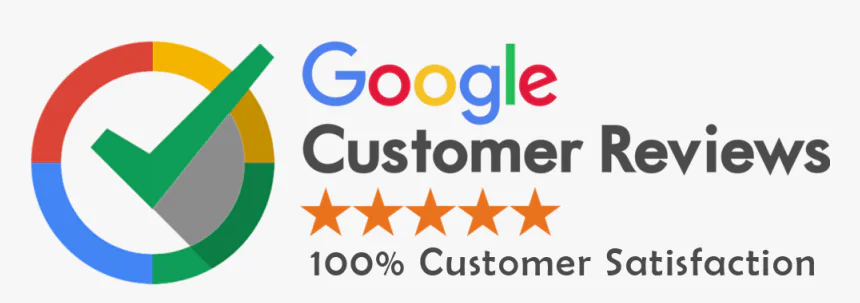Running an ecommerce business is no longer just about listing products and waiting for customers. It requires proper tools, smart planning, and a flexible approach to match the needs of growing online buyers. One of the strongest pillars of success in ecommerce is using the right software. Whether you’re starting fresh or upgrading your current platform, choosing innovative ecommerce software can help boost your business upwards.
These modern software solutions help store owners manage everything from inventory and orders to customer behavior and mobile optimization. In Dubai and across the globe, businesses are turning to tools that offer more control, better design, and seamless integration with payment gateways and logistics.
What is Ecommerce Software?
Ecommerce software is the backbone of any online store. It allows businesses to manage their ecommerce website, sales, and operations efficiently. Some platforms come ready-made with built-in features, while others like Magento or WooCommerce allow deeper customization.
Key Functions of Ecommerce Software
These tools are designed to:
- Manage product listings and pricing
- Track inventory
- Accept multiple payment methods
- Create marketing campaigns
- Offer user-friendly checkout experiences
- Integrate shipping and delivery services
- Provide data reports and analytics
Benefits of Using Innovative Ecommerce Software
Improved Customer Experience
Customers want a smooth shopping experience. Innovative platforms focus on user-friendly design, easy search options, and fast checkout processes. Features like live chat, wish lists, and personalized suggestions improve user satisfaction.
Mobile-Friendly Shopping
Most users browse on mobile devices. Ecommerce software with responsive design ensures your store looks good and works well on any screen.
Secure Payment and Data Protection
With online fraud rising, trusted software includes SSL security, secure payment gateways, and fraud detection tools. This builds trust and encourages repeat buyers.
Automation of Daily Tasks
Innovative platforms automate repetitive tasks such as order processing, inventory updates, and email alerts. This saves time and reduces manual errors.
Better Marketing and SEO Features
Built-in marketing tools help create discounts, upselling offers, and email campaigns. Good software also improves your search ranking by following SEO standards.
Detailed Reporting and Analytics
Track your best-selling products, customer behavior, and sales trends. Smart dashboards make it easier to understand what’s working and what needs improvement.
Top Ecommerce Platforms to Consider
Magento
Magento is known for its flexibility and custom features. It’s used by medium to large businesses that want complete control over their store. It supports multiple languages, currencies, and complex product catalogs.
Shopify
Shopify is simple to use and great for beginners. It offers a range of templates, plugins, and secure hosting. It is ideal for small to medium-sized businesses.
WooCommerce
This WordPress plugin is perfect for those who already have a WordPress site. It’s free and comes with many add-ons for extended functionality.
BigCommerce
A scalable platform known for excellent performance and SEO tools. It includes many advanced features without needing too much technical knowledge.
Features to Look for in Ecommerce Software
- Mobile optimization
- Customizable themes
- Inventory tracking
- Payment integration
- Shipping support
- Secure checkout
- Multilingual support
- Analytics and reporting
- Customer management (CRM)
- Email marketing tools
- SEO and blog options
- App integrations
Importance of Scalability and Flexibility
Your business might start small, but the software you pick should grow with you. Scalable platforms allow you to add more products, handle increased traffic, and introduce new features without needing a total redesign.
Every business is different. A fashion store has different needs than a digital product seller. That’s why software with flexible design and customizable features is valuable. It helps you adjust according to market trends and user feedback.
Support and Community Resources
Look for a platform that offers strong customer support and an active developer community. Whether through email, live chat, or forums, fast support can help solve problems quickly.
Real-World Example: Dubai Fashion Store
Imagine a local fashion brand in Dubai. At first, they sell through social media and WhatsApp. But as orders increase, they need better order management, automatic payment systems, and analytics.
They choose Magento. With it, they customize the website, manage their stock in real-time, and offer multiple payment methods. Their conversion rate improves, and they expand to international shipping. This is how powerful ecommerce software can lift a business upstairs.
Integration with Marketing Tools
Modern ecommerce software allows integration with Google Ads, Facebook Pixel, email platforms, and more. You can track visitors, retarget ads, and send personalized messages. These help increase traffic and conversions.
Multi-Channel Selling Capabilities
Today’s customers shop through various channels – websites, social media, marketplaces. Your software should allow integration with platforms like Amazon, Instagram, and Facebook shops. This expands your visibility.
Inventory and Warehouse Management
Tracking stock is vital. Innovative tools offer real-time inventory updates, low-stock alerts, and syncing across channels. This prevents overselling and stockouts.
Shipping and Logistics Support
Customers expect quick and transparent delivery. Look for software that connects with logistics partners, offers real-time tracking, and supports shipping zones and rules.
Prioritizing Security in Ecommerce
Ecommerce stores are often targeted for cyberattacks. Platforms with built-in security features such as firewall, data encryption, user access control, and backups help prevent data loss.
Affordable Options for Startups
Not every startup can invest in expensive solutions. Many tools like WooCommerce and Shopify offer basic plans that are affordable and scalable. You don’t need to sacrifice quality just because of a low budget.
Regular Updates and Improvements
Technology keeps changing. The best ecommerce platforms offer regular updates to keep your store secure and feature-rich. This ensures your store remains relevant.
Localization Features for UAE Businesses
For regions like the UAE, having Arabic language support, local payment options, and regional currency settings is important. Choose platforms that support localization.
Social Proof and Customer Reviews
Allowing customers to leave reviews, ratings, and testimonials helps build trust. It also improves your product page rankings.
Conclusion
Innovative ecommerce software is not just an expense—it is an investment. The right software brings automation, better customer experience, and higher conversions. Whether you’re a solo entrepreneur or a growing company in Dubai, using the right tool can truly move your ecommerce business upstairs.
Make sure to choose a platform that meets your current needs and grows with you. With the right foundation, the journey to ecommerce success becomes smoother and smarter.






